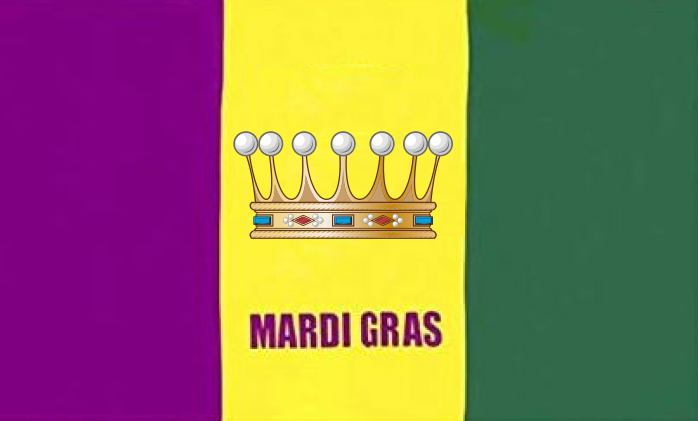The Early History of Mardi Gras and Karneval
By George Mentz JD MBA CILS
First of all, The Roman Papacy, which paid great attention to converting popular pagan customs for Christianity and is said to have retained the pagan festival Saturnalia under the name of Fasching “English = Fasting Eve” or (Carnival.).
While Mardi Gras is distinctively French, the West German Frankish counterpart is called Fasching Fastnacht or Karneval. Although the exact historical origins of the festivities of Fasching are unclear, the observance of its rites is mentioned in Wolfram von Eschenbach’s Parzival (early 13th century). Karneval is a Latin based term that comes from the “carnem levare” (to give up meat).
1234 AD ~ Carnival or Karneval festival originated in the cities such as Mainz and Speyer—and was already established in Koln/Cologne Germany by year 1234 according to Encyclopedia Britannica. As a note, the city of Mainz is the “Designated Holy See (sancta sedes ) North of the Alps” of the Roman Catholic Church. Further, the city of Speyer is an ancient capital city of the Holy Roman Empire which is near the border of France on the Rhineland side of the border.
In Medieval Bavaria and Germany, during Fasching or Fastnacht all people were allowed to be their own masters for the three days before Passion Week. The subjected classes were then allowed to drink to the dregs all pleasures within their reach, to ridicule and parody human and divine laws and ceremonies, without the slightest restraint. The clergy even joined in with the masses. There were generally crazy days “Tolle Tage”, and after that people were tired and ready to repent for lent.
1294 AD ~ The Frankish Carnival or French Mardi Gras dates as far back as year 1294 in places like Nice, Paris and other parts of West Germany, Switzerland and Austria. Mardi Gras is also called Shrove Tuesday or Fat Tuesday in English. The earliest records in France establish its existence in 1294 when the Count of Provence, Charles Anjou, wrote that he had passed “the joyous days of carnival.”
Mardi Gras refers to the Carnival celebrations, beginning on or after the Christian feasts of the Epiphany (Three Kings Day) and culminating on the day before Ash Wednesday.
1699AD ~ According to History.com, The first American Mardi Gras took place on March 3, 1699, when French explorers Pierre Le Moyne d’Iberville and Sieur de Bienville landed near present-day New Orleans, Louisiana. They held a small celebration and dubbed their landing spot Point du Mardi Gras.
Many people refer to Mardi Gras Day as Pancake Day particularly in the British Empire. Pancake Day, or Shrove Tuesday, is the traditional feast day before the start of Lent on Ash Wednesday. Lent – the 40 days leading up to Easter – was traditionally a time of fasting and on Shrove Tuesday, Anglo-Saxon Christians went to confession and were “shriven” (absolved from their sins).
As for today, Carnival appears to be celebrated in many European countries and over 40 nations around the world. To read the history of Louisiana Mardi Gras or Fat Tuesday, go to: https://www.history.com/topics/holidays/mardi-gras

